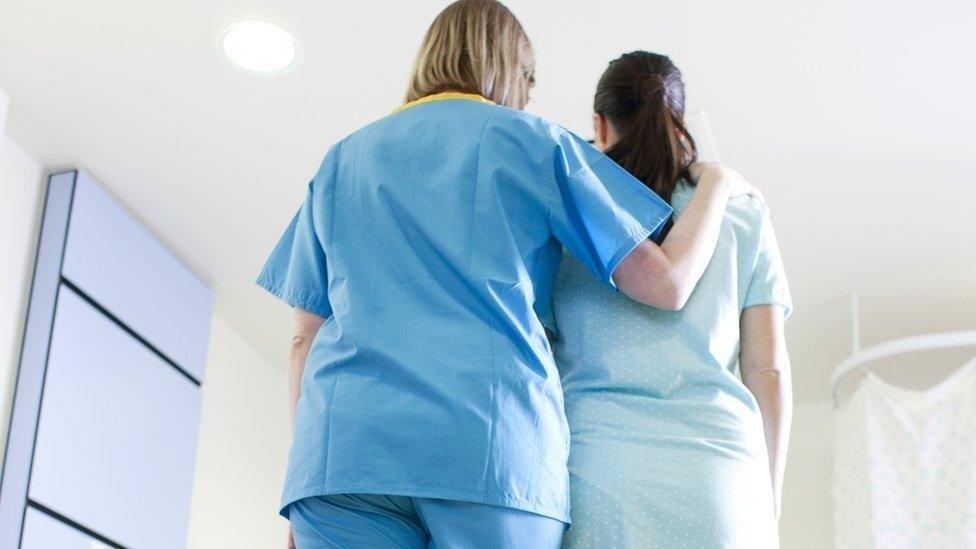Supreme Court examines NI abortion law appeal
- Published
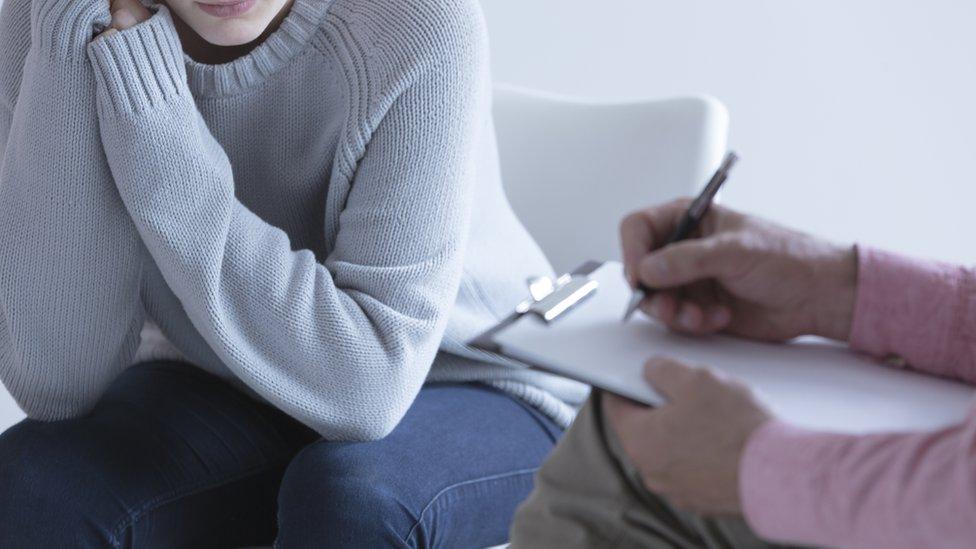
The case has been brought by the Northern Ireland Human Rights Commission
A barrister has claimed that Northern Ireland's abortion legislation has "saved 100,000 lives".
He was speaking for the Christian Action and Research in Education (CARE), on the second day of an appeal relating to the laws.
Supreme Court judges are being asked to consider whether the existing rules breach a woman's human rights.
A lawyer for Amnesty International challenged the figure put forward by CARE's legal representative.
The current law in Northern Ireland means abortion is illegal in all but the most restrictive of circumstances.
Those are when a woman's life is in danger or if continuing the pregnancy would result in mental or physical harm.
The appeal has been brought by the Northern Ireland Human Rights Commission (NIHRC), which argues the current law in Northern Ireland breaches the European Convention on Human Rights.
However, Northern Ireland's Attorney General and lawyers for the Department of Justice have also been on their feet explaining why they consider the law in Northern Ireland is not incompatible with that convention.
Britain's 1967 Abortion Act, which provided a legal defence for carrying out abortions out in England, Scotland and Wales, was never extended to Northern Ireland, where abortion laws remain much stricter than the rest of the UK.
A number of contributors in the case, called 'interveners,' will give evidence.
Some will explain why they believe the law is incompatible with human rights and others will explain their opposition to any change.

Timeline of NI abortion law challenges
30 November 2015: A High Court judge in Northern Ireland rules Northern Ireland's law breached the European Convention on Human Rights in cases of fatal foetal abnormality or sexual crime
11 February 2016: Members of the Northern Ireland Assembly vote against legalising abortion in cases of fatal foetal abnormality (by 59 votes to 40) and cases of sexual crime (by 64 votes to 30)
14 June 2017: Supreme Court rejects an appeal by an anonymous mother and daughter that NI women should be able to access free NHS abortions in England.
29 June 2017: Northern Ireland's Department of Justice (DoJ) and Attorney General successfully appeal against 2015 High Court human rights ruling, prompting the NIHRC to go to the Supreme Court
29 June 2017: The government announces women from Northern Ireland will be entitled to free NHS abortions in England, after a Labour-led campaign

Abortion law in Northern Ireland is based on the Offences against the Person Act 1861, which made it an offence to terminate a pregnancy.
In 1945, an exception was added to allow abortion in order to preserve the life of the mother.
Abortions are also allowed if continuing with the pregnancy will result in other serious physical or mental health effects.
The punishment for breaking the law remains life imprisonment.
This is a significant step in Northern Ireland's abortion law story, as the Supreme Court in London is the final court of appeal for all civil and criminal cases.
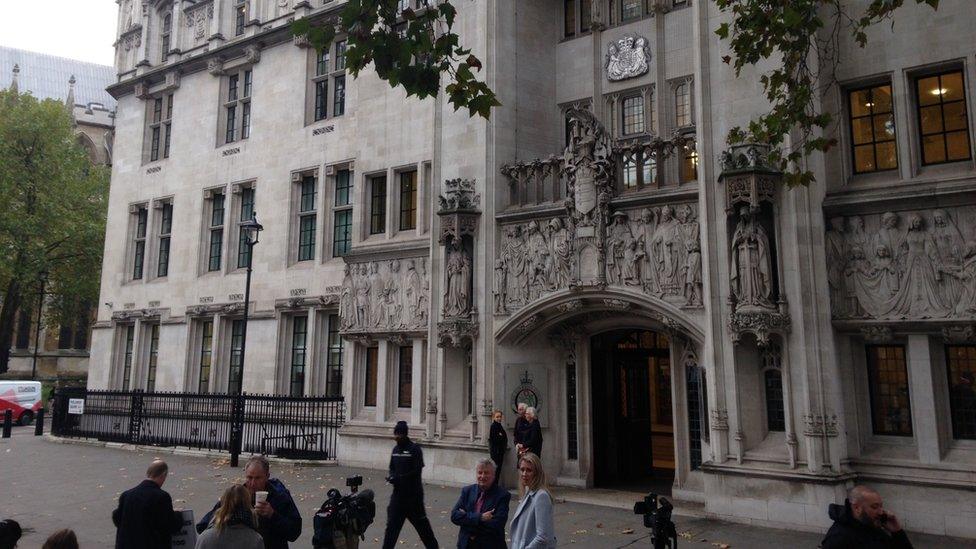
There is much media interest in the Supreme Court hearing
In June, the government announced that women from Northern Ireland would be able to access free abortions in England, but campaigners pointed out that the procedure was not only expense.
On Monday, the Minister for Women and Equalities, Justine Greening, announced a plan to cover travel costs to England in some "hardship cases".
It means women from Northern Ireland, whose income is less than approximately £15,300 per year, will be eligible to state support to pay for travel and accommodation if they choose to have an abortion in England.
Another full day of hearings is due on Thursday.
- Published24 October 2017
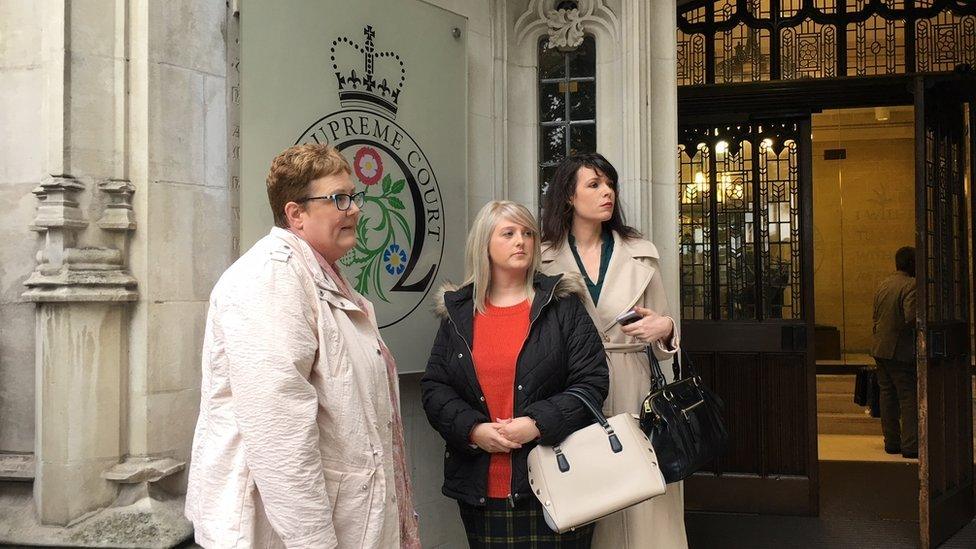
- Published23 October 2017

- Published14 June 2017
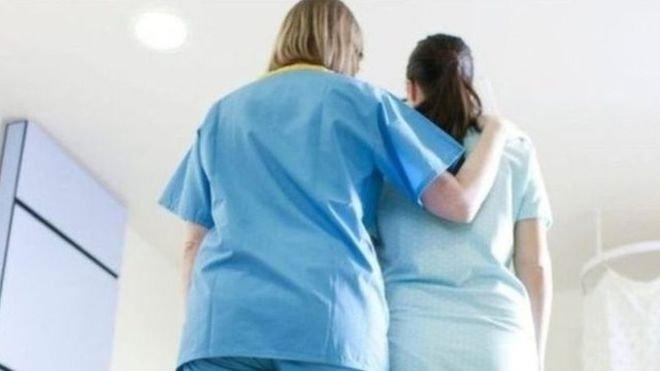
- Published16 December 2015
